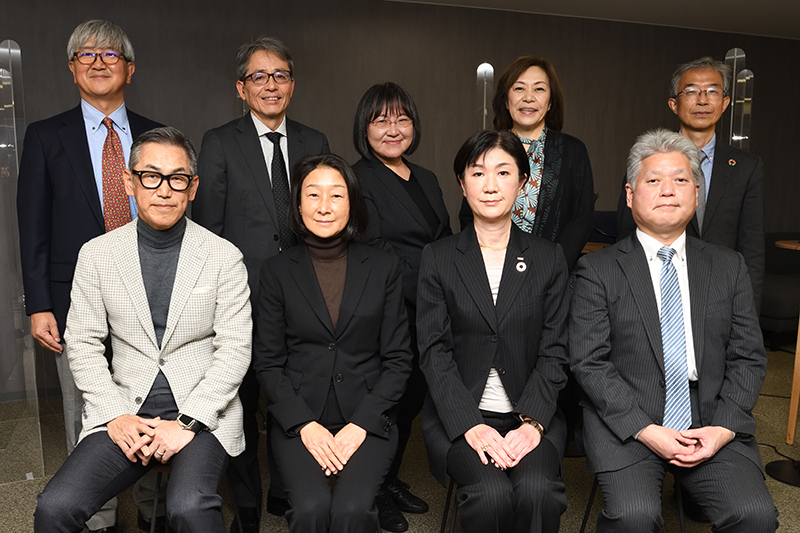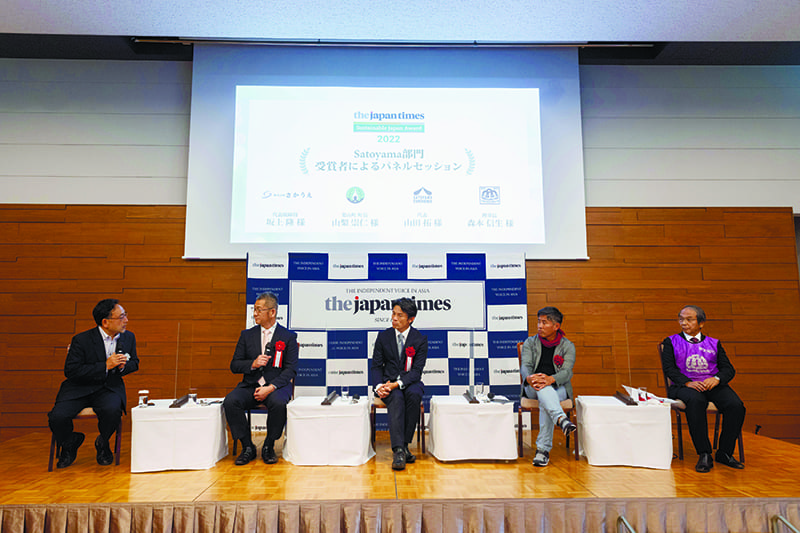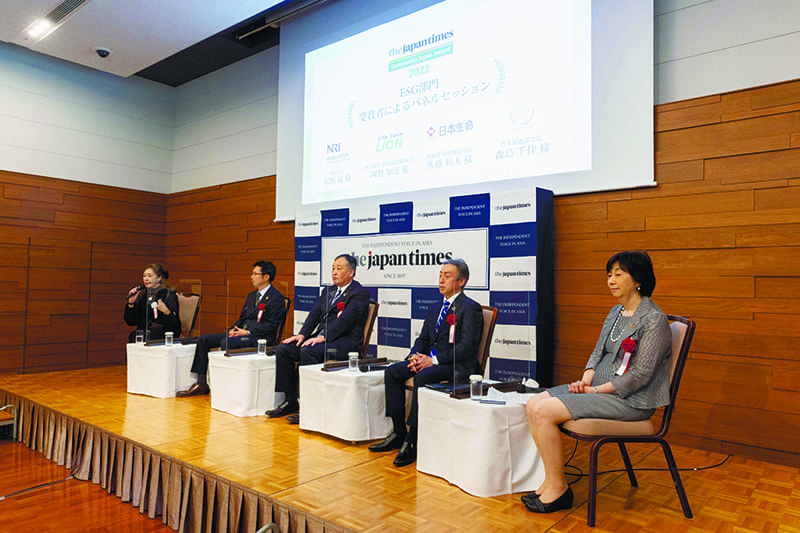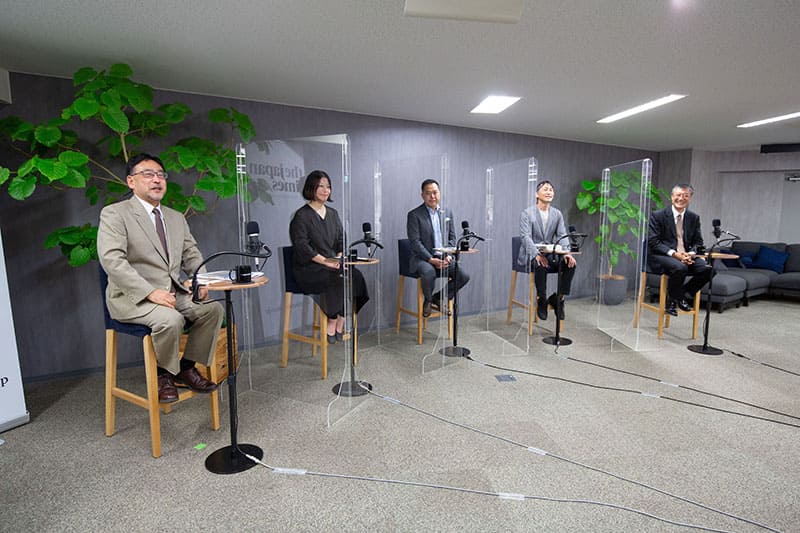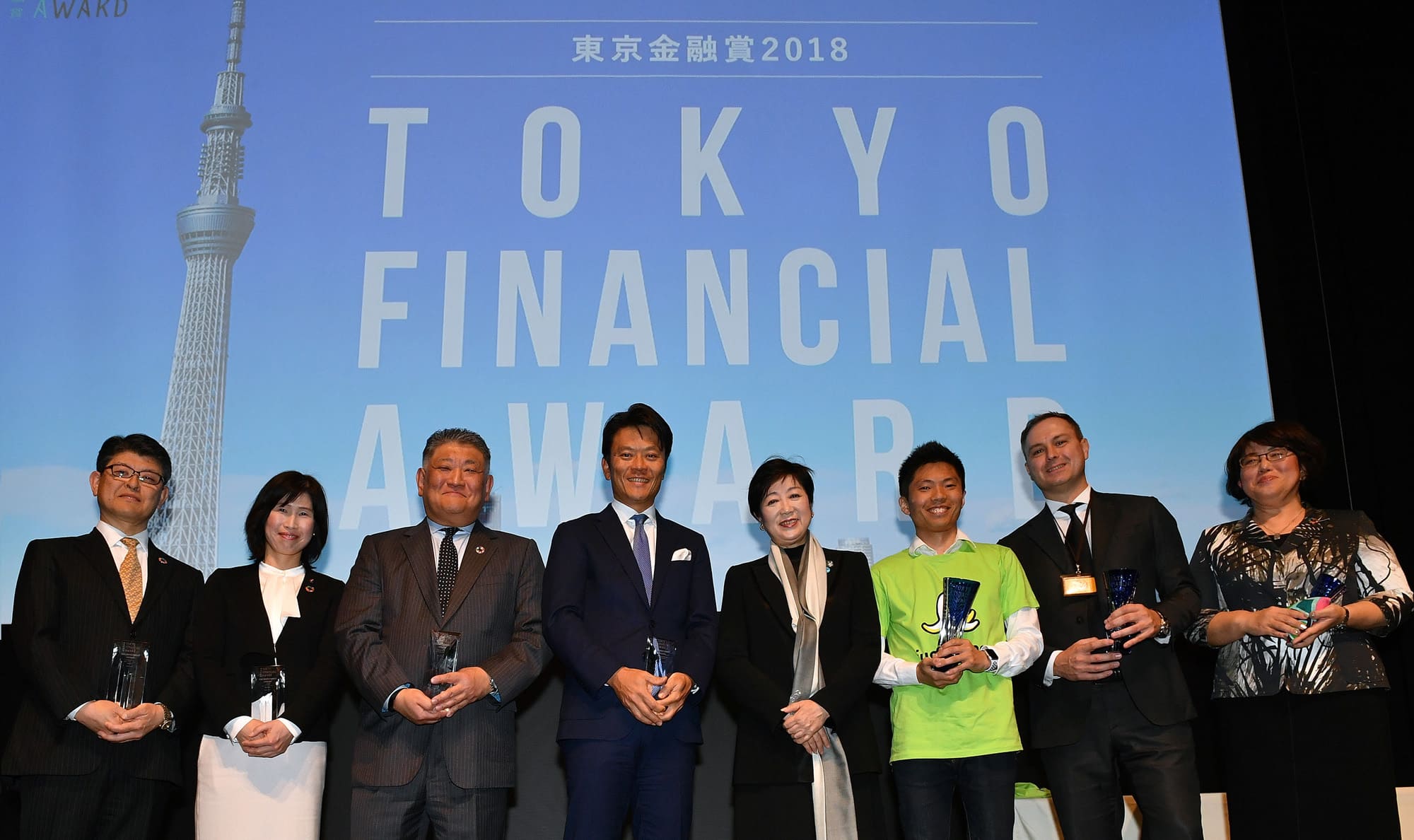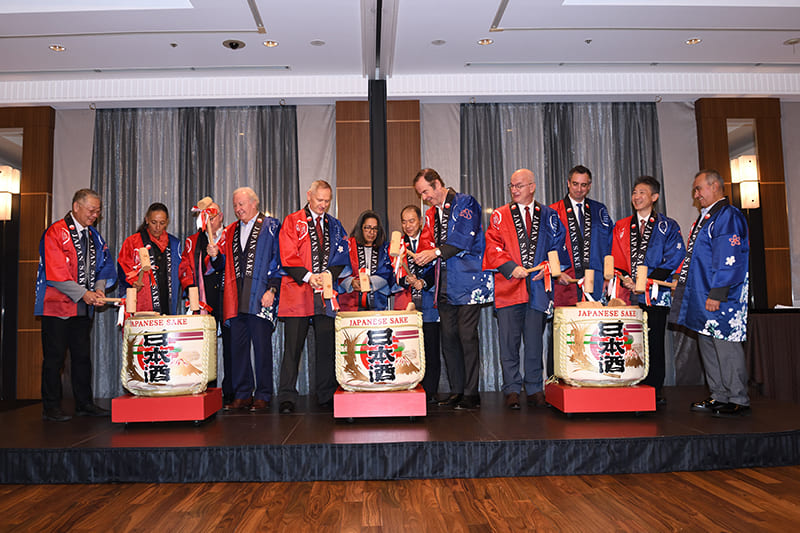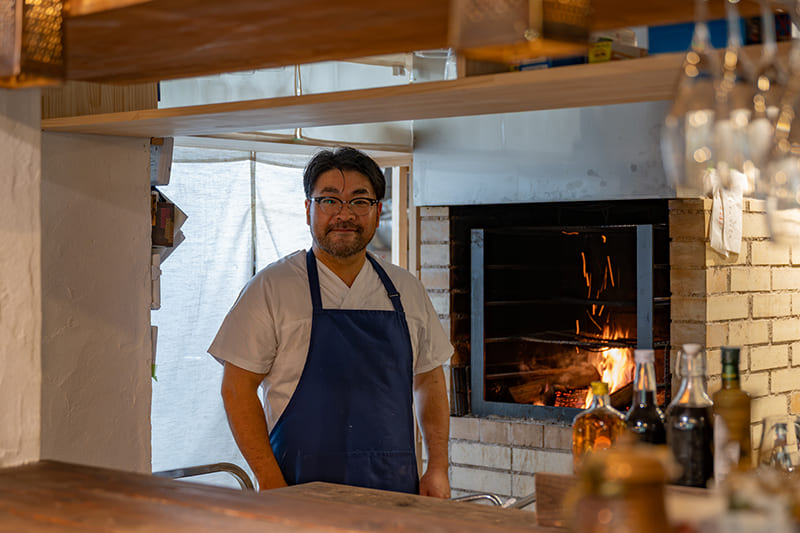December 02, 2024
Sustainable Japan Day
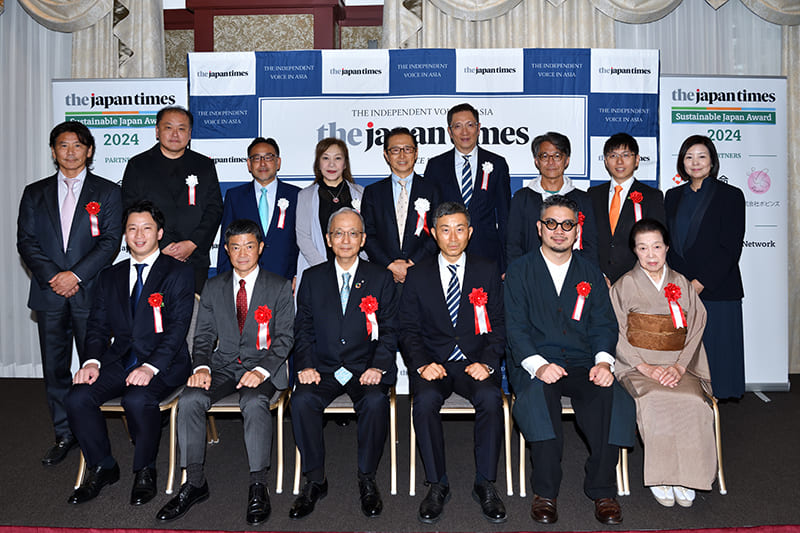
On Oct. 25, The Japan Times held its Sustainable Japan Day at theKudan Kaikan in Tokyo’s Chiyoda area.
The event featured an award ceremony for the winners of the Sustainable Japan Award 2024: one in the ESG category and one in the satoyama category. After the ceremony, two panel sessions were held, one for each category, with representatives of award-winning companies, organizations and local governments introducing the initiatives that led to their winning the awards. In addition, as a special Sustainable Japan Day event, a special dialogue was held.
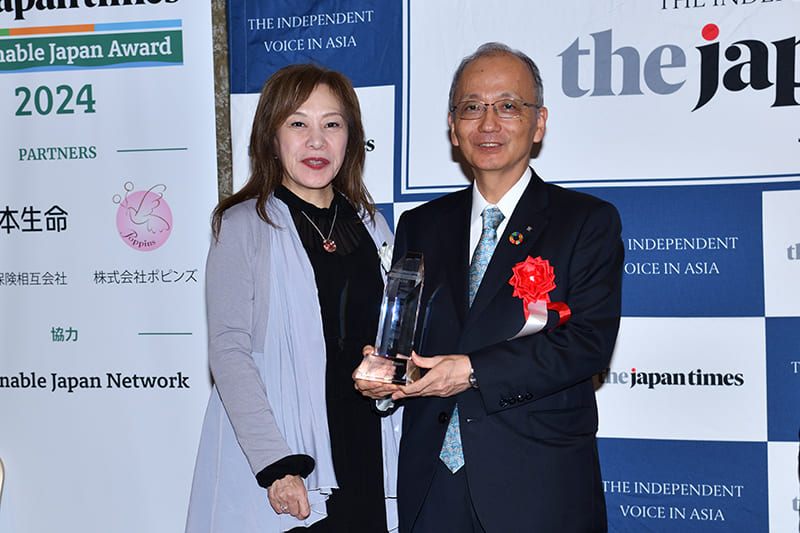
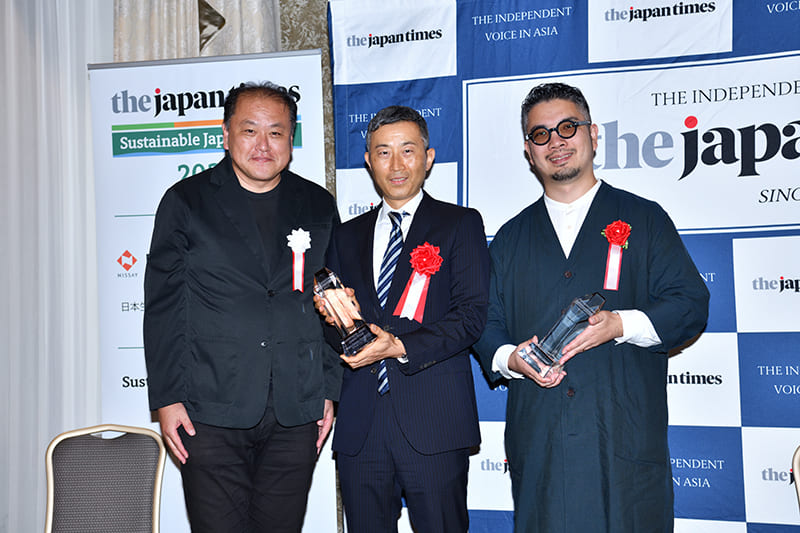
ESG panel session: Driving positive change in society
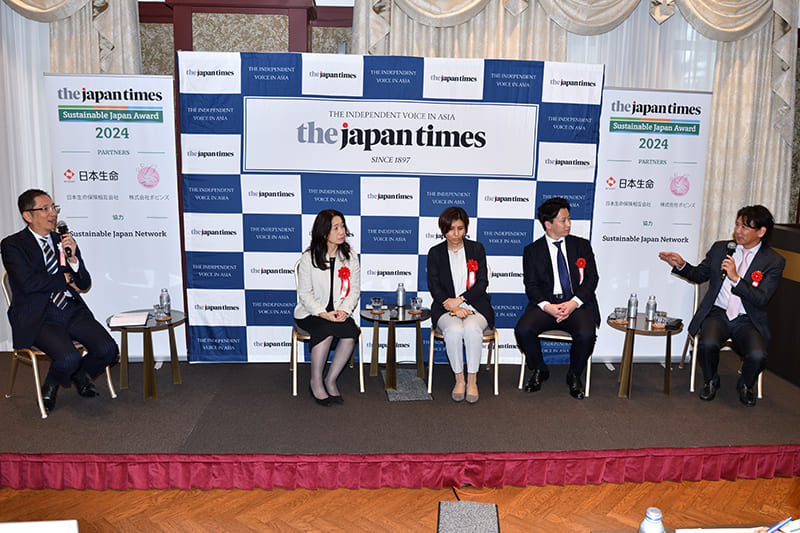
The first panel session, moderated by Naonori Kimura, a partner at Industrial Growth Platform Inc., featured panelists representing the three companies and one organization that received awards in the ESG category. They discussed how those ESG efforts can drive positive change in society.
Akiyo Inaba, the head of sustainability management in the Corporate Planning Department at Sumitomo Mitsui Trust Group, the Grand Prize winner in the ESG section, said the company is celebrating its 100th anniversary this year. “For a century, our company has been dedicated to providing solutions to evolving social challenges,” she said, emphasizing that climate change is currently one of the most critical global issues. In order to achieve the 2050 target for carbon neutrality, the business sector needs substantial financial support. “We are committed to supporting the decarbonization efforts of companies through financial backing, which is made possible by investments from individual and institutional investors,” Inaba said.
She also highlighted the existence of a dedicated team within the Sustainability Management Office, whose role is to plan and manage strategies aimed at achieving carbon neutrality. The team includes professionals from a range of fields, including technical experts with expertise in new technologies that help reduce carbon dioxide.
Oji Holdings, the recipient of the Excellence Award, is a long-established company with a history of over 150 years as Japan’s leading paper manufacturer. Hiromi Yamamoto, the manager of Oji’s Forest Value-Creation and Promotion Department, said that as a company that produces paper and other wood-derived products, forest management is central to its business operations. In addition to increasing the public benefits of forests, the company aims to establish an evaluation method to measure those benefits, with the goal of participating in the development of global standards in this field, which so far has primarily taken place in Europe. “It is inevitable that natural capital accounting will become the norm in the future. We need to align ourselves with the shift toward making business activity itself contribute to the improvement of the environment,” Yamamoto said.
The company’s operations encompass sustainable forest management on a global scale, coupled with the creation of employment opportunities, enhancement of infrastructure, provision of medical services and support for educational initiatives within the communities where its forests are situated.
Wota, the Excellence Award winner, is a startup that is developing a system that converts wastewater into water for daily use. The Wota water recycling system is unique in its compact size and autonomous water treatment control, which makes it an ideal solution for households, and its potential to complement or even replace public water and sewage services makes it particularly well suited to areas facing severe depopulation and mounting deficits in aging water and sewage infrastructure. CEO Yosuke Maeda said it may also provide more options for living in rural areas where public water and sewage services are unavailable. “Our system has been demonstrated to be effective in disaster-affected areas where water supplies are suspended, as evidenced by its deployment in Noto, Ishikawa Prefecture, which was hit by a severe earthquake in January 2024,” he said. He added that unlike water and sewage infrastructure, which necessitate construction, Wota’s system is a manufactured product, which means that as production rises, the price per unit will fall.
Famiee is a nonprofit organization dedicated to promoting the recognition of diverse family forms. Founder and Representative Director Koki Uchiyama said that while there are numerous types of families in Japan, including same-sex couples, de facto married couples, single mothers living together and supporting each other and many others, the country still lacks a legal framework that recognizes and supports these diverse family structures. He highlighted that a range of social and financial services, including medical services, welfare, insurance and loans, are structured and managed according to the traditional concept of the family. “This limits the potential for individuals who have chosen an alternative family structure to provide support to one another,” he stated.
Famiee is addressing this problem by issuing partnership certificates for same-sex partners using blockchain technology and forming a network of companies and local governments that provide services for families based on these certificates. To date, over 100 companies and organizations have adopted the system.
“We will continue our efforts to expand the marriage system and diversify ways to live with others that are not bound by marriage,” he said.
Satoyama panel session: Revitalizing local economies
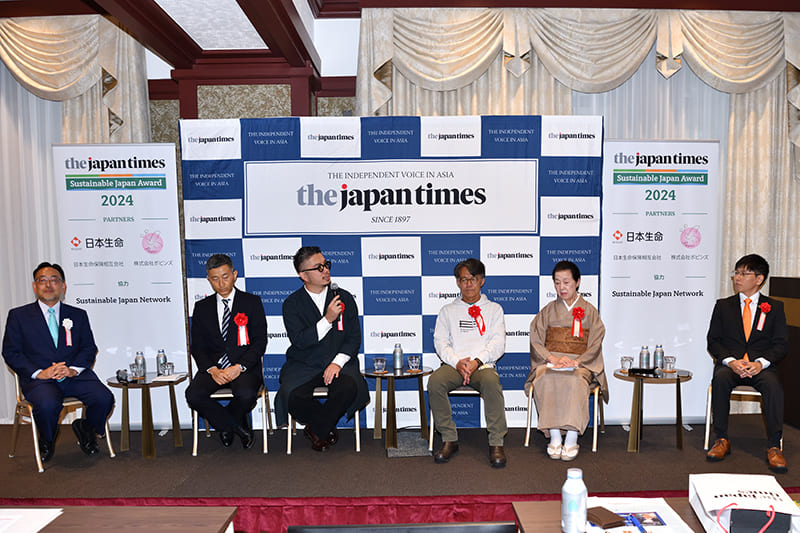
The second panel session was moderated by Kosuke Motani, a Japan Research Institute senior researcher and Japan Times Satoyama Consortium adviser, Kosuke Motani and featured five speakers representing the companies and organizations that won awards in the satoyama section.
The Grand Prize for the section was awarded to Nakamura Brace Co. and Iwami Ginzan Gungendo Group Co. Motani, who is also a member of the judging panel, explained that the two companies were selected for the Grand Prize in recognition of their contributions to the preservation of the community of the town of Omori in Shimane Prefecture and the establishment of a sustainable local economy in the area. Omori is an area around the Iwami Ginzan silver mine, which was designated a UNESCO World Heritage site in 2007.
Nakamura Brace was established in Omori 50 years ago as a prosthetic device manufacturer. President Noburo Nakamura said that following the cessation of operations at the silver mine a century ago, Omori gradually lost its vigor. His father’s contributions extended beyond merely establishing and managing the company. He also started the renovation of vacant properties in the community, with the goal of not only providing accommodation for the company’s employees but also facilitating the establishment of new businesses, including restaurants, souvenir shops and inns. Nakamura continues this tradition, with the company having renovated as many as 65 old buildings to date. “Some of the properties are being utilized by young families who have returned to the area and new residents who are interested in living and working in this town,” he said.
The Iwami Ginzan Gungendo Group is a company that manufactures and sells fashion items and household goods inspired by Japanese traditional materials and techniques while engaging in the revitalization of the area through the renovation of old houses into facilities where people can gather, such as a coffee shop and an art gallery. The company is renovating 15 houses and offering some of them to families with pre-school children for a two-week stay programme. the area seeking opportunities to work remotely while their children attend a local nursery school. “Approximately 40 families utilize our facilities annually, staying over 1,000 nights in total,” said President Tadashi Matsuba. Furthermore, the company is engaged in collaborative efforts with local artisans, including a roof tile maker and a traditional mask maker, in preserving traditional techniques and creating new products.
Maebashi Design Commission, which won the Excellence Award, is an incorporated association that engages in urban development driven by the private sector in the city of Maebashi in Gunma Prefecture. In order to revitalize Babakawa Street, the company raised ¥300 million ($2 million) in the private sector. It also introduced a social impact bond and a results-linked private-sector outsourcing system. “We began by creating and sharing a vision, and then decided on a concept that involved citizens. Our mission is to gather and foster people who are willing to take on various roles in the city’s development,” said the commission’s Hidefusa Kojima. He noted that one advantage of conducting urban development under the initiative of the private sector is that there is no concern of any sudden change in plans due to the municipal leader changing. The other company to receive the Excellence Award was Murasakino Wakuden, which was originally established in 1870 as a ryokan inn in Kyotango, Kyoto Prefecture. Due to the decline of the textile industry in Kyotango, the company relocated to the center of Kyoto and restarted as a ryōtei restaurant. “We had always wanted to give back to Kyotango,” said Aya Kuwamura, the president of Murasakino Wakuden. The company then constructed its factories on the site of a former industrial park in Kyotango, creating local employment opportunities. The remaining land was reverted to its natural state, with a museum constructed by architect Tadao Ando.
G-net, an organization launched in 2001 in the city of Gifu, received the Special Award for its contribution to the revitalization of local industries and the economy through connecting local companies and young people. The company provides a range of services, including internship opportunities and recruitment support. “We have established a platform that facilitates the matching of individuals seeking side jobs or dual employment opportunities with local companies, enabling those who wish to relocate to Gifu to engage with these entities prior to their relocation,” said Representative Director Shuji Minamida. Gifu is a medium-size city with a population of approximately 400,000. “The frameworks we create here can be applied in many different places across Japan,” he said.
Special dialogue
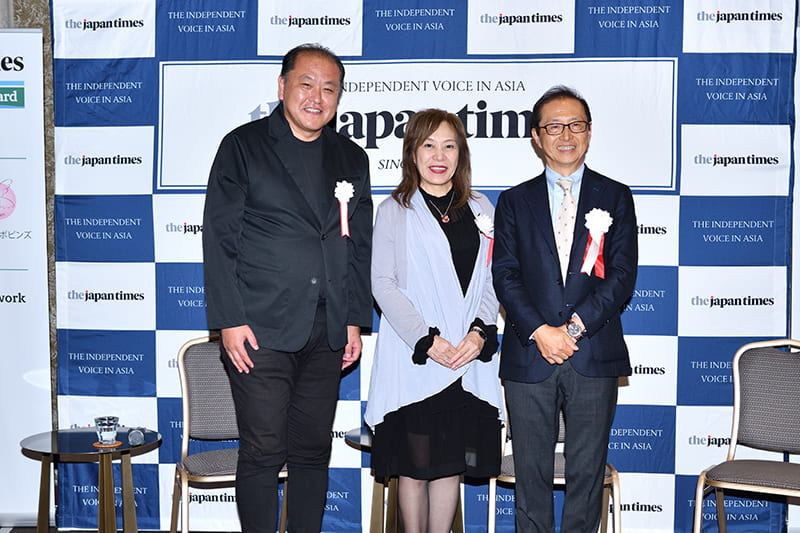
At this year’s Sustainable Japan Day, three advisers to the Sustainable Japan Network took the stage to present a special session, offering insights on the event and their visions for the future.
Michiyo Morisawa, the Japan senior lead of Principles for Responsible Investment, said Japan is a front-runner in global sustainability, as evidenced by the contributions of the award winners to society. “On the other hand, Japan is not as effective as it could be at showcasing its capabilities and achievements on the global stage,” she said. She advised Japanese companies to start by declaring their commitments. “Foreign companies express commitments even when the feasibility is low, while in Japan, companies tend to keep their commitments to themselves while striving to achieve them and only speak out after they are 100% sure of their success, which can lead to a false impression that they are not making any efforts,” she said.
She also proposed that the award’s two categories, ESG and satoyama, could potentially be merged in the future to focus on companies and organizations that are making comprehensive efforts in achieving higher levels of sustainability.
Writer and TV director Kyosuke Inoue, the author of the award-winning book “Satoyama Capitalism,” which explored the potential of a new circular economy that leverages existing rural resources, said the news and stories that people are exposed to tend to focus on negative topics. He emphasized the importance of sharing unique stories of rural efforts with the world, and suggested that language is not the main barrier to communication. “If one has a compelling message to share, it will be heard,” he said.
Takashi Mitachi, a professor in the Graduate School of Management at Kyoto University, also expressed hope that opportunities such as Sustainable Japan Day and the awards would help interesting stories to reach the global audience. Mitachi made a point of noting that “Galapagos,” often used self-deprecatingly among Japanese people to refer to their own country, actually describes the uniqueness of Japan that attracts foreigners. “No one would be interested if everything in Japan were in accordance with global standards,” he said. He also observed that the award winners have demonstrated that sustainability efforts in Japan can become even more attractive by multiplying various elements, such as what Grand Prize winner Nakamura Brace does by multiplying its prosthesis technology, rejuvenating its town through renovation and being situated inside a World Heritage site.
Takahiro Tajiri
deputy director-general for GX policy at METI
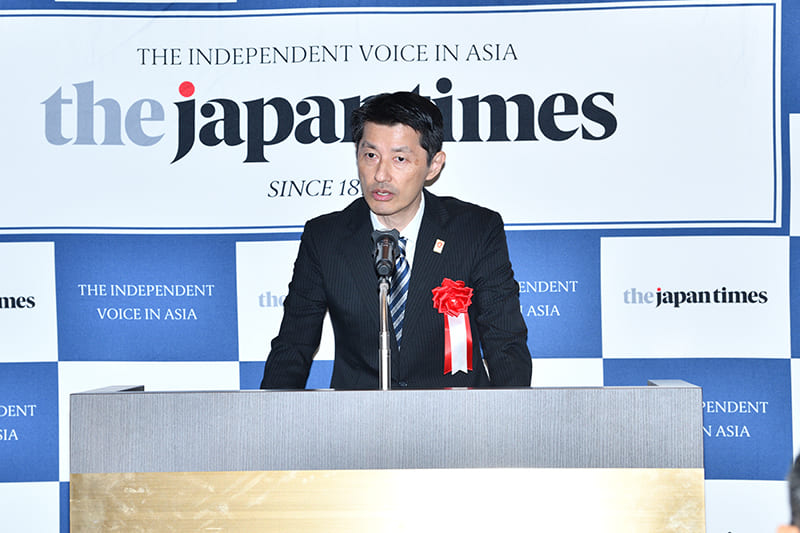
Takahiro Tajiri celebrated the opening of Sustainable Japan Day as an important occasion for disseminating information on Japan’s sustainability efforts. In his speech, he said the government is promoting a green transformation (GX) that ensures both reduced carbon emissions and economic growth. “We will continue to develop the pro-growth carbon pricing concept, and provide ¥20 trillion ($130 billion) worth of investment promotion measures utilizing the issuance of GX Economy Transition Bonds, and through the establishment of the GX Acceleration Agency to provide the financial support necessary for the promotion of GX”, he said.
Yasuyuki Hata
Director-General for Environmental Policy
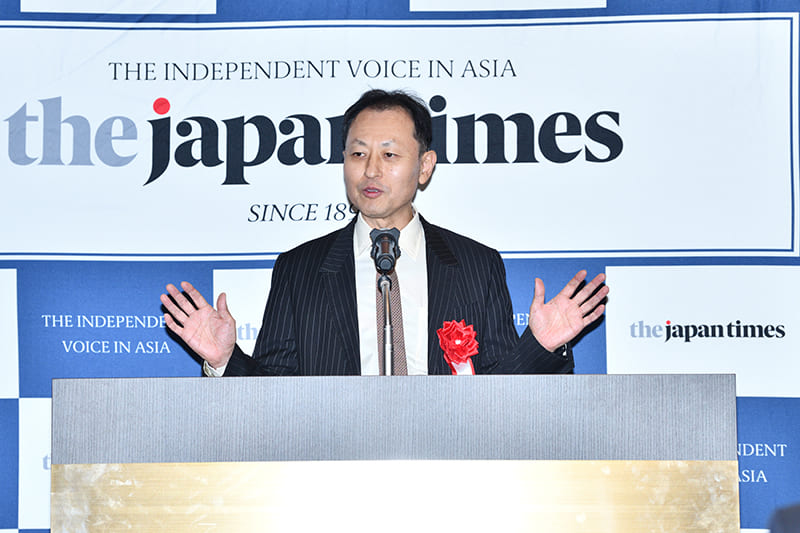
Yasuyuki Hata, extended his congratulations to the award winners for their achievements in addressing challenges that do not have straightforward solutions.
“Despite the perception that Japan is lagging behind other nations in environmental efforts, it is important to recognize that Japan has a long history of fostering sustainable ways of life. These award winners have rediscovered the values of Japan, used them to solve issues and gained people’s understanding,” he said, adding that he hopes their efforts will further engage society and have a greater impact on the world. “We in the public sector are also encouraged by such efforts,” he said.


